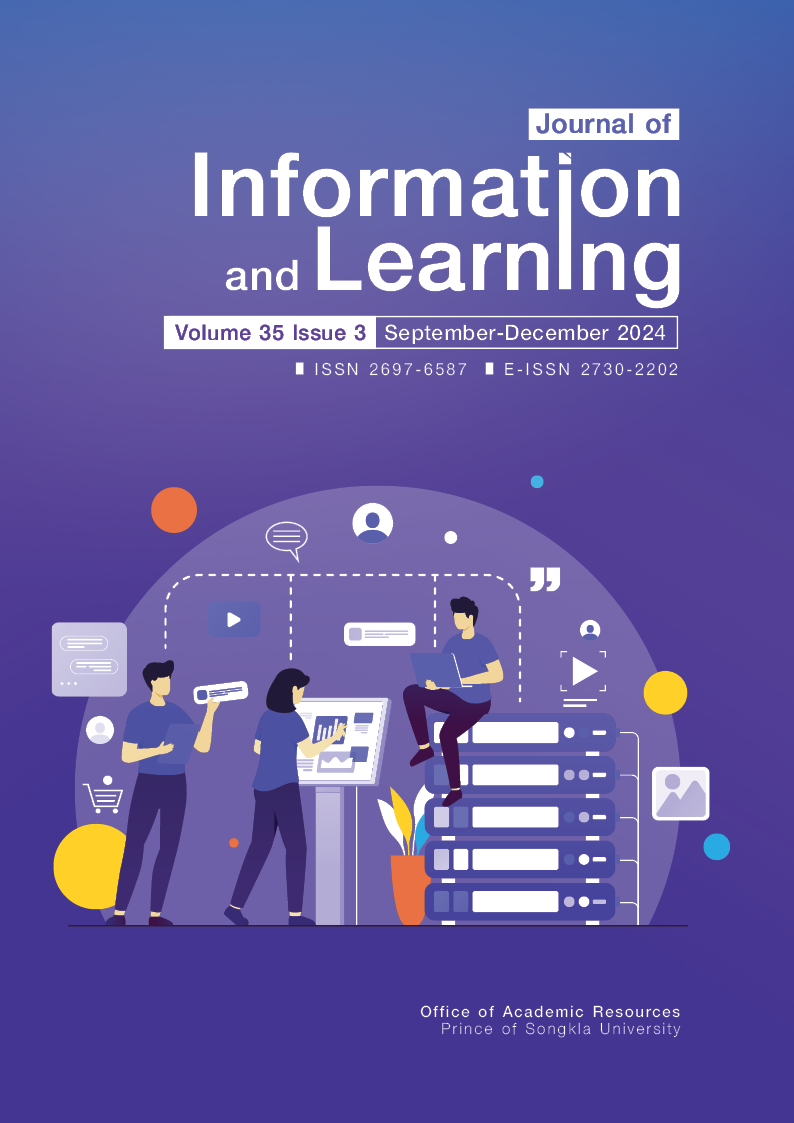Conceptual Framework for Developing a Community Capital-Based School-Level Curriculum Framework for Implementation in School Curriculum Development
Main Article Content
Abstract
This article presents the concept of developing a community capital-based curriculum framework at the school level for use in developing school curricula. It integrates the concepts of curriculum framework and seven types of community capital: natural capital, cultural capital, human capital, social capital, political capital, financial capital, and built capital. This curriculum framework consists of five main components: 1) goals, outlining the overall aims; 2) objectives, providing specific guidelines for achieving the goals; 3) learning management guidelines, framing the approach to learning management; 4) assessment and evaluation approaches; and 5) community capital framework, which is a set of seven capital frameworks used to categorize learning modules. The curriculum framework development process has four steps: Step 1, preparation of educational institutions; Step 2, curriculum framework development; Step 3, implementation of the curriculum framework; and Step 4, monitoring and evaluation of the curriculum framework usage. Implementing this curriculum framework helps connect learning to local contexts, promotes the development of essential skills, and raises awareness of sustainable conservation and the development of community capital. Recommendations include: 1) applying this concept to develop local-level curriculum frameworks by educational service area offices; 2) developing curriculum frameworks and manuals for teacher professional development through learning communities; 3) developing educational institutions as model centers for locally-based educational innovation learning; and 4) introducing successful curricula to communities for learning to create careers and solve community problems.
Article Details

This work is licensed under a Creative Commons Attribution-NonCommercial-NoDerivatives 4.0 International License.
The Journal of Information and Learning is operated by the Office of Academic Resources, Prince of Songkla University. All articles published in the journal are protected by Thailand copyright law. This copyright covers the exclusive rights to share, reproduce and distribute the article, including in electronic forms, reprints, translations, photographic reproductions, or similar. Authors own copyrights in the works they have created as well as the Office of Academic Resources. The Journal reserves the right to edit the language of papers accepted for publication for clarity and correctness, as well as to make formal changes to ensure compliance with the journal's guidelines. All authors must take public responsibility for the content of their paper.
References
Borron, A., Lamm, K. W., & Atkins, K. (2020). The development and validation of a personal agency scale based in the community capitals framework. Journal of International Agricultural and Extension Education, 27(3), 43-58. https://doi.org/10.5191/jiaee.2020.27343
Duangjaidee, W. (2020). Essential techniques for effective curriculum management. Journal of Education, Prince of Songkla University, Pattani Campus, 31(1), 16-27. https://so02.tci-thaijo.org/index.php/edupsu/article/view/213936
Duangjaidee, W. (2022). Khūmư̄ kān nam krō̜p laksūt Pattani Heritage Paichai nai sāthān suksā [Guidelines for implementing the Patani heritage curriculum framework in schools]. Prince of Songkla University.
Emery, M., & Flora, C. (2006). Spiraling-up: Mapping community transformation with community capitals framework. Community Development, 37(1), 19-35. https://doi.org/10.1080/15575330609490152
Fauziddin, M., Suryanti, S., & Wiryanto, W. (2022). Community-based education and regional culture, Has it been put into practice? Al-Ishlah: Jurnal Pendidikan, 14(2), 1069-1078. https://doi.org/10.35445/alishlah.v14i2.2067
International Bureau of Education. (2017). Developing and implementing curriculum frameworks. UNESCO. https://unesdoc.unesco.org/ark:/48223/pf0000250052
Johnson, M., Fitzsimons, S., & Coleman, V. (2023). Development challenges in challenging contexts: A 3-stage curriculum framework design approach for Education in Emergencies. Prospects, 53, 43-56. https://doi.org/10.1007/s11125-022-09601-0
National Steering Committee for National Curriculum Frameworks. (2023). National curriculum framework for school education. Ministry of Education, Government of India. https://www.education.gov.in/sites/upload_files/mhrd/files/NCF-School-Education-Pre-Draft.pdf
Office of Pattani Primary Educational Service Area 1. (2022). Krō̜p laksūt thō̜ngthin [Local curriculum framework]. Office of Pattani Primary Educational Service Area 1.
Office of the Basic Education Commission. (2010). Guidelines for developing school curriculum. Ministry of Education.
Pasiechnyk, C. L. (2018). Place-based education: Improving learning while connecting students to community and environment [Master's project, University of Victoria]. http://hdl.handle.net/1828/9239
Rwanda Education Board. (2020). Competence-based curriculum: Summary of curriculum framework for teacher training colleges. https://elearning.reb.rw/mod/folder/view.php?id=5674
Taylor, R., Van Leuven, A. J., & Robinson, S. (2023). The role of community capital in rural renewal. Local Development & Society, 1-20. https://doi.org/10.1080/26883597.2023.2258453
The Centre for Social Justice. (2019). Community capital: How purposeful participation empowers humans to flourish. https://www.centreforsocialjustice.org.uk/wp-content/uploads/2020/01/CSJ-Community-Capital-Report-final-version.pdf
Yemini, M., Engel, L., & Ben Simon, A. (2023). Place-based education–a systematic review of literature. Educational Review, 1-21. https://doi.org/10.1080/00131911.2023.2177260


